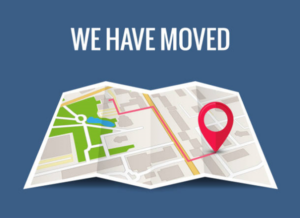Building new habits takes some time and effort, but we find that the new habits eventually become part of our new routine. Learn more about slogans and how they help build habits,

The 12-Step process is steeped in its slogans. Sometimes it can feel like they are too easily tossed around. However, over time, when one stays committed to their practice, you learn that there is power that comes from them.
“DOING GOOD, FEELING GOOD!”
A Personal Reflection on entries (August 30th) from Just for Today (copyright (c) 2007-2015, NA World Services, Inc. All Rights Reserved)
“We examine our actions, reactions and motives. We often find that we’ve been doing better than we’ve been feeling.” – Basic Text, p. 43
The way we treat others often reveals our own state of being. When we are at peace, we’re most likely to treat others with respect and compassion.
However, when we’re feeling off center, we’re likely to respond to others with intolerance and impatience. When we take regular inventory, we’ll probably notice a pattern. We treat others badly when we feel bad about ourselves.
What might not be revealed in an inventory, however, is the other side of the coin: When we treat others well, we feel good about ourselves. When we add this positive truth to the negative facts we find about ourselves in our inventory. We begin to behave differently.
When we feel badly, we can pause to pray for guidance and strength. Then, we make a decision to treat those around us with kindness, gentleness and the same concern we’d like to be shown. A decision to be kind may nurture and sustain the happiness and peace of mind we all wish for. And the joy we inspire may lift the spirits of those around us, in turn fostering our own spiritual well-being.
Just for today: I will remember that if I change my actions, my thoughts will follow.
Personal Reflection:
In early recovery, we learn that we must be willing to change our thinking. This is easier said than done, but the program offers a solution – the Steps. We may find that we keep hearing similar ideas over and over again – “Just for Today”, “Progress, not Perfection”, etc. There is a very good reason for this – we learn through repetition. That is how habits are formed. Many of the principles of the 12 Steps are similar to the concepts of Cognitive Behavioral Therapy – despite the fact that the Steps were written decades before the therapy model came into its recent prominence.
As the meditation for August 30th states – “I will remember that if I change my actions, my thoughts will follow.” In the Steps, we work on both our thinking and our behavior. By working on both together, we find that both our behavior and our thinking improve over time. It does not happen quickly or easily. It is not automatic – it takes work. We can think of our recovery maintenance work as being like starting a new exercise routine – the more we practice it and repeat it, the better we will be and the more naturally we will do it. These recovery skills become our new habits for better living. There is truth to the saying that “meeting makers make it,” the idea of doing daily meetings in your first ninety days for recovery, the oft-repeated suggestion of keep going to meetings are all there for good reason. “It works if you work it.”
That’s an awful lot of slogan for just two paragraphs. Why do we have so many slogans? Repetition. We learn by doing the right things over and over again. We learned really well how to use and how to keep using; how to rationalize it and justify it by doing it over and over again until we didn’t know any other way to live. Now we need to unlearn those things by learning new habits! We need to be willing to spend as much (or more!) time and effort on our recovery as we did using our active addiction. Building new habits takes some time and effort, but we find that the new habits eventually become part of our new routine. Going to meetings now feels as natural to me as eating dinner or going to bed.
The more we do the right thing, the better we feel about ourselves. The more our thinking improves, which makes it easier to keep doing the right thing and even better things, and feel even better about ourselves. We continue to improve our thinking even more, and so on. Instead of a vicious cycle of spiraling downwards out of control, we are now on a controlled ascent – onward and upwards!
Peace,
Mark Dutcher
Mark is a Client Support Specialist at Ten16’s Detox program.
 Contact
Contact FAQs
FAQs




